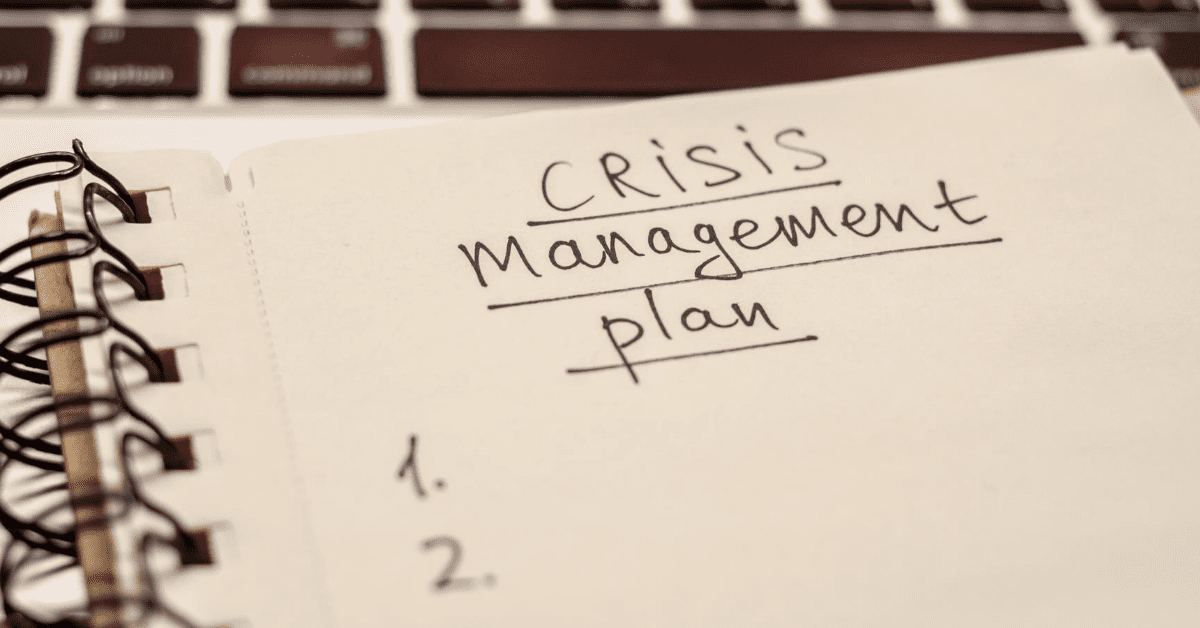
Some crises are thrust upon us, like a pandemic or tough laws; others are self-inflicted through carelessness, poor planning or just plain bad luck. Regardless of how you get there, it’s possible to come through a crisis with your bottom line and your reputation intact.

During his session at LANDSCAPES 2020: The Virtual Experience, Christopher Brown, co-founder of Teed & Brown, will cover a host of strategies to prevent, prepare for and pilot your business through the inevitable crises that will come your way.
His session “Navigating Your Company Through Crisis” will address the step-by-step process for handling a crisis as well as how your team should behave under pressure.
Why Crisis Management Matters
It is a dangerous game to assume that a crisis will never hit your company. While some self-inflicted situations can be avoided, others are unpreventable.
“That’s the beauty of crisis management,” Brown says. “By practicing and preparing for a variety of possible, foreseeable problems, you gain the skills necessary to handle many other, non-foreseeable problems. One year ago, I wouldn’t have advised preparation for a global pandemic because the likelihood was so low, and the circumstances were so unclear. But those companies who aggressively prepared for other crises were by far in the best position to handle this one.”
Successfully handling a crisis situation can improve your company’s standing and can build your reputation as a responsible, decent company. Meanwhile, poor crisis management can harm your business, or even put you out of business altogether.
“Like insurance, you never want to have to use it, but you’ll be very glad you had the system in place when you find yourself in the unwanted spotlight,” Brown says.
Prepare Before a Crisis
When a crisis hits, you won’t be thinking clearly. Emotions will be running high and you’ll be angry, upset, or even afraid of potential consequences.
“Responding successfully to a crisis requires a quick AND well-thought-out approach,” Brown says. “These are two things that are nearly impossible to do in the heat of the moment. And for this reason, you need to have a game plan in place ahead of time. Do the thinking when you’re calm and clear-headed so that you can implement it when you’re not.”
Brown advises writing out a step-by-step game plan well ahead of time and then implementing it.
“Do the thinking ahead of time, then trust your plan when the time comes,” he says.
Common Crises to Expect
In Brown’s session, he will be covering 3 primary types of crises: accidents that result in injury, extreme employee misbehavior and sudden loss of large accounts.
“Vehicle accidents are common,” Brown says. “Employee misbehavior can lead to serious problems. A disgruntled client may decide to go on a virtual rampage, trashing your business online for anyone who will listen. A senior, former employee might break off to start his/her own business, then immediately attempt to hire away your best people and recruit your best clients.”
Because there are so many types of crises, Brown will also walk through the proper steps for handling any potential crisis so individual companies can start working on their own plans for what they need to be prepared for.
Want more information about how to handle a crisis? Attend LANDSCAPES 2020!

